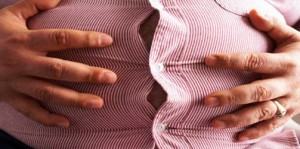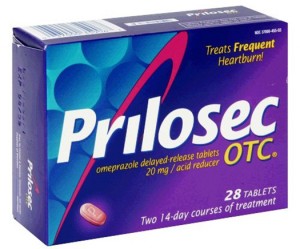 Eating is supposed to be a nice experience – having a good meal nourishes both the body and soul. There are, however, some conditions which can make eating a less-than-pleasant experience. Indigestion is usually just annoying. Sometimes, though, it could signify a serious condition. Indigestion is an uncomfortable feeling of bloating you might get after eating. Some people also experience nausea, burping and gas. In addition to that, there could be some heartburn – that burning sensation deep in the chest caused by acid in the esophagus – and abdominal pain. Indigestion isn’t a condition in itself, but the result of some underlying disorder, instead.
Eating is supposed to be a nice experience – having a good meal nourishes both the body and soul. There are, however, some conditions which can make eating a less-than-pleasant experience. Indigestion is usually just annoying. Sometimes, though, it could signify a serious condition. Indigestion is an uncomfortable feeling of bloating you might get after eating. Some people also experience nausea, burping and gas. In addition to that, there could be some heartburn – that burning sensation deep in the chest caused by acid in the esophagus – and abdominal pain. Indigestion isn’t a condition in itself, but the result of some underlying disorder, instead.
There are a few things that might cause you to have indigestion: gastritis, ulcers, gall bladder disease, and/or GERD. We’ll talk about GERD and gastritis here. GERD stands for GastroEsophageal Reflux Disorder. The stomach normally produces acid to digest the food you eat. GERD is a condition in which stomach acid comes back up into the esophagus – the food passage right above the stomach. There is a valve (called the “Lower Esophageal Sphincter” or “LES” in medicalese) between the esophagus and stomach; sometimes this valve does not close properly, allowing the acid to flow up, instead of keeping it down in the stomach where it belongs. GERD typically occurs after meals, especially large meals, causing bloating and a burning sensation in the chest. Some people feel nauseated as well, have a bitter or acidic taste in their mouth, and may feel acid coming back up into the throat, along with increased salivation. People with asthma may also have increased asthma symptoms if they have GERD.
Instead of GERD, a person might just have gastritis, where the lining of the stomach is irritated but it doesn’t cause problems in the esophagus. Severe enough gastritis can cause an ulcer, which is an open wound inside the stomach or small intestine (right below the stomach). The person with an ulcer may experience stomach pain and even vomiting, sometimes with blood. Gastritis typically is described as stomach pain or burning, but not moving up into the chest. If a person has developed an ulcer from their gastritis, that pain is often worse when the stomach is empty and relieved after eating something. If you have both GERD and gastritis, you may have all of these symptoms.
 There are many possible causes of these irritations of the stomach and/or esophagus. Some of these causes include: eating large meals and then lying down shortly afterward; obesity; certain foods – some people are bothered by spicy foods, and others develop heartburn when they eat a lot of carbohydrates like bread and candy, or drink caffeinated sodas and coffee; drinking alcohol; smoking cigarettes; certain medications called NSAIDS (non-steroidal anti-inflammatory drugs) such as aspirin and ibuprofen, or steroid medications taken by mouth; and the Helicobacter Pylori (H. Pylori) infection.
There are many possible causes of these irritations of the stomach and/or esophagus. Some of these causes include: eating large meals and then lying down shortly afterward; obesity; certain foods – some people are bothered by spicy foods, and others develop heartburn when they eat a lot of carbohydrates like bread and candy, or drink caffeinated sodas and coffee; drinking alcohol; smoking cigarettes; certain medications called NSAIDS (non-steroidal anti-inflammatory drugs) such as aspirin and ibuprofen, or steroid medications taken by mouth; and the Helicobacter Pylori (H. Pylori) infection.
When indigestion is caused by gastritis, H. Pylori bacteria may be the culprit causing the gastritis. In the old days, we thought ulcers were caused by eating spicy foods or worrying too much about things. Now we know that the vast majority of stomach ulcers are caused by bacteria known as H. Pylori. This infection can become chronic in some people. No one is really sure how H. Pylori is spread, but it is probably through contact with saliva and contaminated food and water. It is very common in developing countries, but the U.S. has a good amount of it, too. If H. Pylori infection goes untreated, there is an increased risk of developing stomach cancer. If GERD goes untreated for too long, the esophagus can become scarred and narrowed – there is also a greater risk of cancer.
Sometimes, finding the cause of your indigestion can be as easy as changing some habits and taking an over-the-counter medicine to reduce acid. If you find that you have indigestion and acid reflux when you lie down after a meal, it’s likely GERD. Try eating smaller meals and leaving more time between eating and lying down. You might take a medicine like omeprazole or famotidine (Prilosec and Pepcid are brand names, but it’s much cheaper to buy these as generic medicines – they are chemically the same, but cost about half the price). You can buy these without a prescription. Also, cut down on caffeine and alcohol, and any other foods that cause you to have symptoms.
If, after trying all these habit changes you still have symptoms, consider seeing your primary care provider. It’s possible you will need to have a study called an endoscopy to look directly at your innards. For the endoscopy, you are given medicine to make you go to sleep or allow you to be awake but not really aware of what’s happening to you while the specialist (gastroenterologist) takes a look around to see if there is damage to your esophagus, stomach, or small intestine. If you only have symptoms of gastritis, you may be asked to provide a stool sample (yes, it’s gross to poop in a cup, but it is one of the best ways to be tested) or to do a breath test. These tests can show the presence of H. Pylori bacteria, indicating that you should be treated. You might not need an endoscopy if one of these tests indicates that you have H. Pylori.
Since both GERD and gastritis are a result of acid damage, the first line of treatment is to use medicines that decrease your body’s amount of acid production – that’s what omeprazole and famotidine do. The important thing now is to know if you have H. Pylori infection because, in addition to these medications just mentioned, you would also need to take a few different antibiotics. If you have H. Pylori, your stomach will feel better while taking the antacid medications, but as soon as you stop them, the pain, bloating and discomfort will return. Once you kill the bacteria by taking the proper types and amounts of antibiotics, you can be symptom-free! And, your risk of stomach cancer will decrease. So, take care of your belly, and bon appetit!
